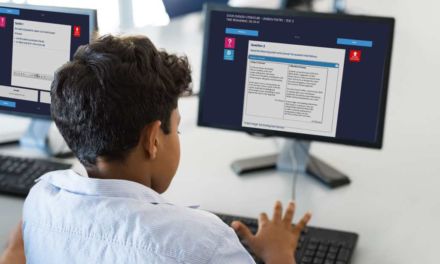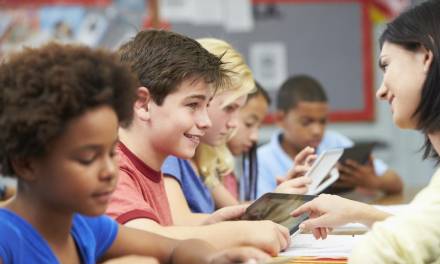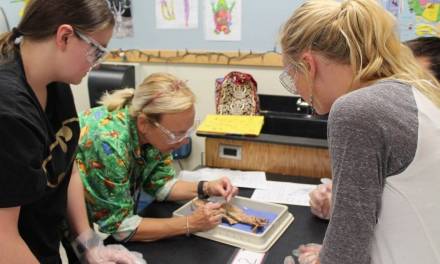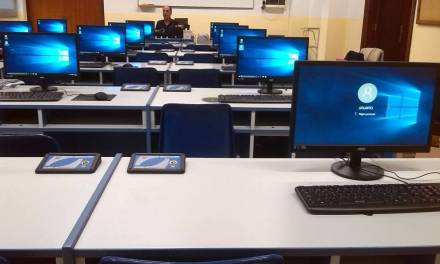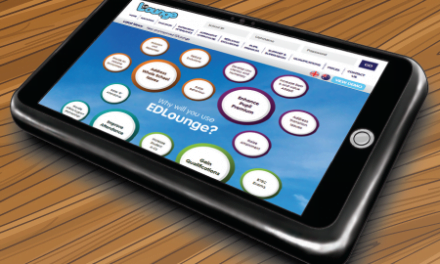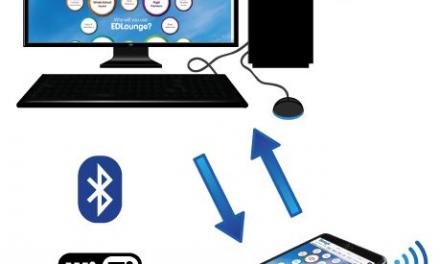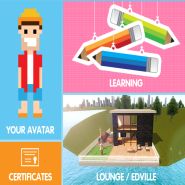
STEM
RECOMMENDED
5 science facts to amaze your students
Reading time: 3 minutes
Students can have four, five or even six lessons during a day and some may feel that they are being bombarded with useless, irrelevant or even boring information. However, sometimes, it can take just one interesting fact or exciting anecdote to capture a student’s interest and ignite their passion for a subject. In this article, we have collated our five favourite science facts that will amaze and engage your students.
Read MoreVirtual Reality in Schools
Reading time: 3 minutes
With the advancement in digitalisation, educational institutions have started using newer technology, such as virtual reality, in their learning modes. Modern learning environments utilise virtual reality in open learning methods to make education more accessible to learners.
There are several ways of integrating virtual reality into learning modes. One example is incorporating the technology of VR into the medical demonstrations, where the learners learn the medicinal terms without coming in contact with any bacteria or harmful substances.
Read MoreVirtual reality in vocational subjects in schools
Reading time: 3 minutes
Virtual Reality is the use of computer technology in the creation of a simulated environment that can be explored in 360 degrees. Hence, virtual use creates an assisted reality where people can explore the concepts around them according to their terms. Virtual reality is being increasingly integrated into new teaching methods in various educational institutions across the world. This integration facilitates the students to immerse in the alternative world and grasp the concepts in a fun way.
Virtual reality can be used in the classroom in two ways. One way is when a student explores a virtual environment using a computer. The other is where a student explores using some input device, such as a controller or virtual reality headset. The latter setup completely immerses students through the use of a head-mounted display.
Read MoreThe future of virtual classrooms
Reading time: 3 minutes
In the next ten years, significant shifts will be made to how we acquire knowledge. Recent developments in digital media, communication, and bandwidth have made it feasible to provide education at a much-reduced cost compared to more conventional methods. Students have access to a wide variety of materials on the internet, including text, audio, and video content, as well as interactive and collaborative tools. When polled, eighty-five per cent of today’s online students responded positively to whether or not they thought distance learning was on par with or even better than conventional classroom-based courses. The human connection is an essential component of classroom instruction that video-on-demand or virtual classroom courses do not have and severely miss.
Read MoreDoes gamification assist primary school children learning?
Reading time: 3 minutes
The use of game mechanics in settings that are not intended for gaming is called gamification. It is done to improve the user experience. It is not a simple effort to create a learning environment that encourages creative thinking. Teachers often adhere to more conventional methods during language instruction, such as the chalk-and-talk method. Lessons conducted using pen and paper are less appealing to primary school children of the 21st century, who would rather participate in activities that are more like games. Because of this, the use of gamification in the classroom would immediately result in passion and interest, leading to the learners’ eagerness to study.
What is gamification?
The use of game-design components and game-play principles in settings unrelated to gaming is what is meant to be understood as “gamification.” For instance, the acquisition of virtual “points” or some other form of currency, as well as the completion of a series of tasks or activities to advance to the next level, are both elements that can be used in contexts other than gaming to provide a learning environment that is both enjoyable and stimulating.
Read MoreTop tips to pass Maths
Reading time: 3 minutes
Maths can be very stressful, but it doesn’t have to be if you are prepared. Here are some great tips to help excel in the subject.
Before the exam
Don’t leave revision till the last minute. Start now, you will thank yourself later! Ask your teacher for help if you are not sure how to revise / where to start. Use any past papers you can find for your revision. Practice answering them like an actual exam – no distractions, set a timer. Use these not only to identify which topics you need to revise further, but to understand how an examiner uses the mark scheme to mark your exam. You will learn how important it is for working out to be set out neatly and in a logical order. If you are untidy and disorganised, you might misread some of your own work and/or lose marks because the examiner cannot read your work or follow your method.
Read MoreEducational Games can provide great benefits
Reading time: 3 minutes
Educational games have the potential to help a child develop their learning skills.
Read More20 unbelievable science facts that will shock you
Reading time: 4 minutes
Science is in the news every single day. From NHS stories, to issues with fracking, climate change, discoveries, nature and the solar system it is something which is unavoidable.
Science has benefits from helping us improve of way of life, our quality of life and helping others. It’s importance means it is compulsory from primary schools up to GCSE. To become a doctor it takes up to 14 years of training to become specialised.
In this unprecedented times, science is never out of the spotlight. And whether it’s chemistry, biology or physics you’re interested in – these unbelievable science facts will blow your mind.
Read MoreWorld Health Day: Stay on top of KS3 and GCSE Science
Reading time: 2 minutes
7 April is World Health Day. The day celebrates the work of nurses, midwives, world leaders are more in their endeavours. Perhaps it is a timely day given the circumstances we are currently faced with.
How health can be positively and adversely affected by our actions. Many of these are explained to us throughout KS3 science and biology lessons.
But what is World Health Day and how can KS3 and KS4 science help us understand our health?
Read MoreTop 10 educational games to keep children occupied
Reading time: 2 minutes
Many parents are unsure how to entertain their children following school closures announced on Wednesday.
The decision has crated an uncertain time for parents and pupils. Many parents do not want education to cease.
But how should you keep children occupied during the period, and how can you ensure education continues? This blog post is the top 10 educational games to keep children occupied.
Read MoreWhy maths is essential from a very young age
Reading time: 3 minutes
Maths is an essential in everyday life. We use mathematics concepts each day in our lives (often without realising). The subject governs everything around us and without a good understand a person could encounter difficult problems in life.
There is a reason why maths is one of the first subjects we learn at school.
This blog post explains the reasons why maths is essential and you can use online learning to improve your ability.
Read MoreTop 10 tips for online safety
Reading time: 3 minutes
What are the top 10 tips for online safety?
Children’s internet use is at record high levels. On average, 5 to 15 year olds spend 15 hours a week online. Access to the internet is at an all time high, with almost 50% of 5 to 15 year olds have their own tablet.
But with the knowledge and social benefits that increased technology promotes, it also carries increased risk.
Read More5 simple strategies…for using technology as an aid to learning
Reading time: 3 minutes
Schools, just like every other sector of society, are using more technology than ever before.
In 2015, official government statistics found that schools in the UK spend more than £900m on educational technology each year.
Read MoreShould social media have a place in our curriculum?
Reading time: 2 minutes
Social media is here and there’s no getting away from it. While it will necessarily evolve in future years, there is little doubt that social communication online is here to stay.
The question for teachers and school leaders is how to integrate that into the curriculum and, indeed, whether it should be integrated into it at all.
Read More5 potential career paths for…computer science students
Reading time: 3 minutes
Your computer science student sits in front of you and asks that ominous question – “where next?”.
While some subjects are an unnatural fit for many careers, you’re going to have good news for this particular student.
Read MoreUsing technology to help improve behaviour in schools
Reading time: 3 minutes
Technology that improves the learning experience and enhances teaching methods is already utilised widely across the UK and beyond.
However, technology isn’t solely confined to assisting academic achievement – it can also be used in various ways to improve behaviour.
Read More5 potential career paths for…biology students
Reading time: 2 minutes
With a skills gap currently existing in STEM subjects, it has become more important than ever to encourage young people to pursue careers in the fields of science, especially girls, who have been shown to still lack confidence in the subject.
Read MoreUsing social media as an aid to learning
Reading time: 4 minutes
Modern students spend a lot of time online. In particular, they spend a lot of time on social media. For some teachers, this can be frustrating, hindering their attempts to persuade pupils to engage with homework and content beyond the classroom.
Here are a few ideas you could use to get social media working for you and your class.
Read MoreMotivating the next generation to participate in STEM subjects
Reading time: 3 minutes
In recent years there have been a number of studies commissioned to look at the importance of STEM subjects in UK schools and how teachers (and industry) can help increase and encourage students to choose a STEM career path (E.g. Royal Academy of Engineering, Wellcome Trust, University of London, Futurelab).
Read More5 potential career paths for…physics students
Reading time: 2 minutes
Physics is not only an exciting and engaging course of study, it is also the gateway to a number of satisfying and rewarding careers.
From traditional scientific industries to more unusual pathways, there are a great many opportunities open to physics specialists which are sure to appeal to students with an interest in the field.
Read More5 potential career paths for…maths students
Reading time: 3 minutes
Numbers, equations, facts and figures. For many of us a maths-focused career where every day is filled with number-crunching would be far from a welcome prospect.
However, for maths students and for those who are naturally skilled with numbers, the following five career paths can offer rewarding opportunities with excellent career prospects.
Read MoreSafeguarding: teacher and student interaction via social media
Reading time: 3 minutes
The majority of schools now have in place safeguarding rules for acceptable behaviour and teacher-student interaction on social media.
These focus on the safety and security of the children but sometimes don’t cover in as much detail what teachers should do to ensure that their own online interaction (even with friends and family) does not conflict with school policies.
Read More5 potential career paths for…chemistry students
Reading time: 2 minutes
While many students have an image in their minds of chemists as men in white coats, the reality is very different.
For a start, organisations such as WISE are encouraging more women into science-based careers, and more opportunities exist for women than ever before in fields relating to chemistry.
Also, although many chemistry-related career paths are based in laboratories, studying chemistry opens up a world of other opportunities too.
Read MoreUsing social media to raise your school’s profile
Reading time: 3 minutes
With the average school now managing multiple accounts, social media has probably been a key part of your school’s marketing and communication strategy for some time.
Whilst most users of social media understand how to use their chosen networks to communicate, not all schools use social media well, especially if there is no-one with relevant marketing experience available.
Read MoreHow games can help increase numeracy skills
Reading time: 2 minutes
Numeracy – it’s often not the easiest of subjects to teach, even when you have all the passion in the world.
Engaging children in numbers can often feel one of the toughest of all teaching nuts to crack. If this sounds familiar, games could well present the answer.
Read MoreHow to make maths more fun
Reading time: 2 minutes
Maths + Fun = An impossible equation? Not necessarily.
Whether you’re a teacher or parent, attempting to engage an unwilling child in maths can sometimes be difficult.
Here are some simple and effective ways to make mathematics fun (for motivated kids and learning that sticks).
Read MoreWill handwriting ever become obsolete?
Reading time: 2 minutes
You may have heard the news. Apparently handwriting is soon to become obsolete.
However, for those of us who are dedicated to the idea of writing being indispensable, comfort can be taken in the fact that the death of writing (and reading) was discussed as early as 1987 and then promptly rejected by commentators.
Read MoreUsing Sport to Boost Numeracy Skills
Reading time: 2 minutes
How does one go about raising the numeracy skills in youth who, for a great majority, want little to nothing to do with math exercises?
The solution may be found through an integration of sports and numeracy skills.
Read MoreEncouraging girls to take up STEM subjects
Reading time: 2 minutes
Girls outperform boys at GCSE, A-Level and degree level and yet there are clear gender differences in the higher education subjects they select. Only 13% of engineering, 22% of maths and 18% of technology places are taken by women. Compare this to the 89% of women who make up the UK’s nursing workforce.
How can schools close the gap and lure more girls into STEM? It’s a subject that’s generated much debate and a slew of initiatives, including Stemettes, Girls Into STEM and the WISE campaign’s People Like Me resource that address why girls aren’t taking up physics.
Read MoreWhat is Game-based learning (GBL)?
Reading time: 2 minutes
Make no mistake – the game-based learning (GBL) market is doing a roaring trade. Global revenues hit $2.6 billion this year, reports the Serious Play Conference, and are expected to reach a mind-boggling $7.3 billion by 2021. Key consumers are today’s schoolchildren; the first true generation of digital natives.
Do you know your GBL from your gamification, and how to get up to speed with the latest developments?
Read MoreIs technology making people less sociable?
Reading time: 2 minutes
When the question is posed – “are people becoming less sociable because of technology?” – we often conjure up an image of a child playing a video game, ignoring their parents’ shouts to come down for dinner, and failing to socialise with other kids. However, the question is a lot more complex than you may think.
There is little denying that technology has advanced rapidly over the past few years, and it is now an integral part of daily life. Technological advancements have changed the way we communicate, and whether it is for better or worse is not so straightforward.
Read MoreSeven Essential Tips for Staying Safe Online
Reading time: 2 minutes
As a member of a generation that has grown up alongside the likes of Facebook and Twitter, you probably feel as though you’re continually told of the dangers that the online world can present. It can all feel, well, pretty repetitive.
Yet the dangers are very, very real – so despite it being more interesting to read about the latest celeb gossip, the following seven online safety tips make for pretty important reading…
Read MoreCould Online Learning Ever Replace Schools?
Reading time: 2 minutes
Recently, legislation was put forward in New Zealand that allows for school-ages children to take part in online learning courses, potentially reducing (or even eliminating) the amount of time spent in a physical school environment.
Since the motion was put forward, there has been heavy debate about whether or not this will benefit children, or damage their education.
Read MoreTechnology and social media – they’re changing the way we talk
Reading time: 2 minutes
Technology has never experienced such a rapid pace of progression – today, we stand on the cusp of realising Virtual Reality, driverless cars and Artificial Intelligence.
Equally social media is now entwined within our everyday lives – over the course of a decade it has revolutionised how we conduct our social lives, how we connect with others and how we communicate with the world around us.
Read MoreTeaching coding as part of the national curriculum
Reading time: 2 minutes
The changes to the computing curriculum may well have been lost in the middle of some fairly large scale reform over the last year or so, but will impact learning in many subjects according to those in the know.
The idea of teaching coding is incredibly daunting to those who may have just about grasped how to play Candy Crush on their phone, but is really a question of teaching strategy, logic and thinking – ideas which all educators can see are relevant across the spectrum of subjects.
Read MoreTechnology and how it can test knowledge and understanding
Reading time: 2 minutes
Technology in 2015 offers a number of ways to be a motivational teaching aid. It’s a very flexible and customisable tool and can provide incredibly varied ways to expand learning experiences.
The testing of knowledge and understanding of what has taken place in a lesson can be achieved through a good mix of written and verbal feedback, question and answer sessions, written or verbal tests or self-reflective activities and projects such as diaries. Technology adds another layer to be able to assess the levels of understanding and can provide very personalised results.
Read MoreTextbooks in the classroom
Reading time: 3 minutes
With the rise of the use of technology in the classroom – in particular handheld devices such as tablets – there are questions being increasingly raised as to the future of the printed textbook and whether it has a place in the classroom now or in the near future.
Textbooks have been the mainstay of teaching for over a hundred years and give structure to teaching sessions and markers for pupil progress and achievement.
Read MoreHow to Raise Engagement in Science
Reading time: 2 minutes
Science has traditionally been a difficult subject to promote among many pupils. It’s viewed by some as difficult to understand and by others as not being relevant in day to day life. Many switch off when faced with chemical equations and theories and universities struggle to fill their science-based courses due to poor uptake at A level.
There is a way though to raise engagement in science and it’s being pioneered by the very people who are seen as elite and exclusive – scientists. Those who are carrying out research are using data more and more collected by school pupils through specific projects and the overall title given to this kind of work is ‘citizen science’.
Read MoreStaying up to Date with Technology; both as a Teacher and by Integrating into Classroom Time
Reading time: 2 minutes
It’s only a generation since classes used blackboards and the IT room was only really utilised by the IT teacher. The world of tablets, laptops, smartphones and whiteboards were future ideas in the minds of the technology world and certainly weren’t seen to be a definitive tool to be used on a daily basis within schools outside the computer room.
Technology now is everywhere; tablets for all pupils, the use of sites such as Facebook for social learning and text books replaced by interactive learning software. For teachers who have limited knowledge of current technology, it can be daunting to be presented with new hardware to use or be expected to teach a class skills barely understood themselves.
Read MoreSocial Learning
Reading time: 3 minutes
Social learning is a big trend within education. For any students using Twitter, Pinterest or Facebook as part of projects and research work, they are already participating in this area of teaching.
Many teachers may be unaware of the underpinning basics of what social learning is and how it can best be utilised in lesson time.
Read MoreWays to Raise Engagement in Maths
Reading time: 3 minutes
Raising engagement in maths – and in turn attainment – is a major focus of every school curriculum policy. Looking at ways to motivate and enthuse pupils in a subject where some have always struggled isn’t easy.
However, there are ways to stop the jumble of figures being seemingly meaningless both on the page and in real life and to illustrate ways to put together the parts of the jigsaw which makes up the whole subject.
Read MoreIdentifying and understanding cyber bullying
Reading time: 3 minutes
It’s a sad fact that bullying has always been a part of school life. Schools work hard to identify and address the issue in partnership with parents and organisations which specialise in eradicating bullying, but the magic bullet of how to make bullying disappear is yet to be found.
The way bullying takes place has also changed. Whilst it still happens in physical confrontations, there’s now the growing issue of cyber bullying through online and mobile phone interaction.
Read More5 Simple Strategies…to Reduce Cyber Bullying in the Classroom
Reading time: 2 minutes
Cyber bullying is a very real part of school life and sadly one that is on the rise.
With growing numbers reporting that they have been subjected to some kind of pain through the actions of a cyber bully, often with the added stress that they have no idea of who is carrying out the harassment due to the ease of remaining anonymous when making threats or defamatory comments, the school has a pivotal role to play in reducing this terrible form of treatment towards peers.
Read MoreThe use of tablets in schools
Reading time: 2 minutes
The use of tablets in schools is currently at its highest ever level, with no sign of a downturn.
Technology charity Tablets for Schools has recently released the results of a study examining the use of the hardware in both primary and secondary sectors. The figures show that of the 671 schools sampled, tablets are in use to some degree in 68% of primary schools and 69% of secondary schools.
Read MoreThe future of maths in schools – are computers the way forward?
Reading time: 3 minutes
The traditionally taught methods of maths are being challenged by those who feel that the future of the subject should be less about the mechanics of maths and more about the concept of the subject and the practical uses. There are calls for maths to become more about everyday use than currently taught and less and less about the theory behind how the maths works.
In essence, the thoughts are that learning about what algebra is should be replaced completely in the future with how it’s used in everyday scenarios.
Read MoreBring Your Own Device
Reading time: 3 minutes
For many classroom situations, students producing a phone in a lesson is obviously not required and shows that they are not engaging in the lesson itself. However, there are a number of benefits to asking them to ‘Bring Your Own Device’ (BYOD) as a way of accessing learning information and to be used as tools for engagement and increased technology awareness.
More and more schools and colleges are now setting up dedicated IT provisions so student devices will connect to the in-house network.
Read MoreDigital Literacy
Reading time: 3 minutes
Digital literacy is now a cornerstone key skill for many careers and there is a growing impetus for it to be recognised as being as important as being able to read and write to a level where it felt that it is a comprehensively gained life skill.
In the past, digital literacy was known generically as ICT and was originally untested. It did not sit alongside the core subjects of English, maths and science and was often based around learning packages such as Microsoft Office or activities which included internet browsing or gaming.
Read MoreThe Battle of the STEM Subjects
Reading time: 2 minutes
Teachers of STEM subjects are looking to find ways to make them more appealing following a study which showed that those who are studying maths and science-based subjects find them ‘dull’.
Over 1500 students were interviewed in the 14-18 year old age group and 44% said that they felt that STEM subjects (science, technology, engineering and maths) were ‘uninteresting’.
Read MoreUsing Technology to Engage Hard to Reach Learners
Reading time: 3 minutes
Whilst every year the media applauds those who attain incredible achievements with their GCSE or A level exams, there are many students left in the shadows who are unable to even dream of attaining similar success or may not be interested in attending school.
For many who fall into this category, a disadvantaged background is almost certainly a key element in the issue, there those who require assistance to learn even the most basic literacy and numeracy skills and there are those who become bored because they don’t feel challenged.
Read MoreTechnology in Education: Mobile Learning
Reading time: 3 minutes
Mobile technologies are putting a wealth of resources into the hands of pupils and making learning on the move a feasible proposition. Whilst some educators regard mobile learning (also called m-learning) as a way to engage with hard-to-reach pupils, others also relish the chance the technology provides to explore new ways of learning, regardless of students’ abilities and attitudes.
In essence, mobile learning means the use of mobile devices to enable learning any time and anywhere. Mobile devices include tablets, smart-phones, games consoles and media players.
Read MoreCareers in the gaming industry
Reading time: 2 minutes
Sheffield had an exciting event over the weekend to celebrate Britain’s gaming heritage and to inspire a new generation of gamers with Games Britannia Live! The event took place at various venues around the city with plenty to get involved with.
Arcade games lined the Millennium Gallery and gamers young and old gathered round the stalls to partake in workshops and test their design skills.
Read MoreThe problem with maths
Reading time: 2 minutes
I don’t think anybody would be surprised by the notion that maths is often considered unpopular. Indeed one of the biggest barriers to engagement with maths seems to be the reputation it has in society.
In his book, Rethinking School Mathematics, Andrew Noyes identifies the social barriers pupils experience in regards to maths, and the fact that textbooks’ attempts to connect maths problems to real life situations often fail as “there is a real difference between what many teachers and textbooks perceive to be real-life mathematics and what people experience in their lives”.
Read MoreGame-based learning
Reading time: 3 minutes
How can the use of digital games in the classroom support children and young people’s learning?
As increasing numbers of 8-18-year-olds participate in gaming, so has interest in the identification and harnessing of its potential to support learning in schools. EDLounge takes a look at the key findings.
Read MoreSafer Internet Day 2014
Reading time: 4 minutes
Safer Internet Day 2014 is the perfect time to plan your approach to making the internet a safer place for your pupils. Adults and young people alike are exposed to countless threats on a daily basis whilst surfing the net. By identifying these threats and devising methods to combat them, we can start making the internet safer for young people.
Safer Internet Day is a great initiative for raising the awareness necessary to protect young people from the dangers encountered online. The day serves to “promote safer and more responsible use of online technology and mobile phones, especially amongst children and young people across the world.” (Insafe, 2014).
Read MoreComputing Curriculum 2014 – Digital Technology in the Classroom
Reading time: 2 minutes
Digital Technology and its place in the classroom has been a hot topic in education over the last few months. From September, when the new coding curriculum will come into effect, England will be the first country in the world to make this mandatory in both primary and secondary education (The Telegraph, December 2013). One country that embraced digital technology before many other countries is Estonia, where children are already taught programming, robotics and generating QR codes for their smartphones (BBC, 2014).
Read More











